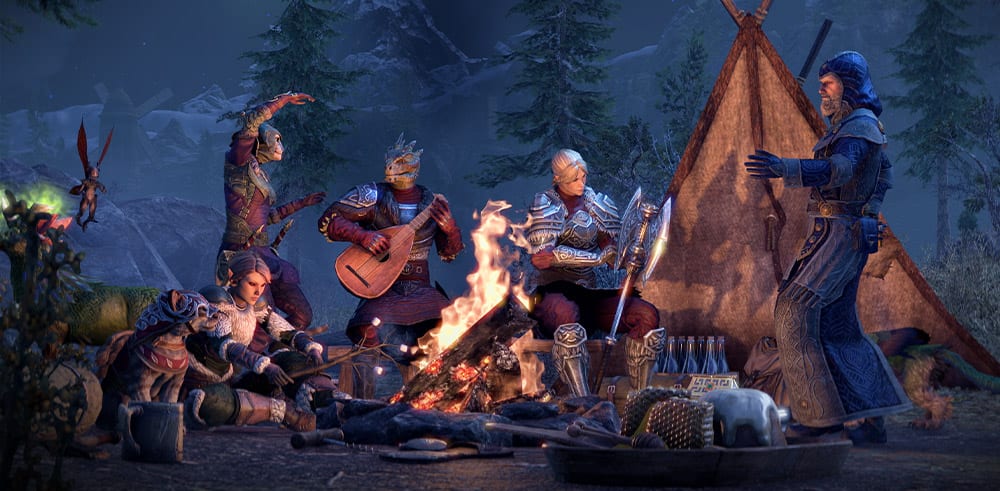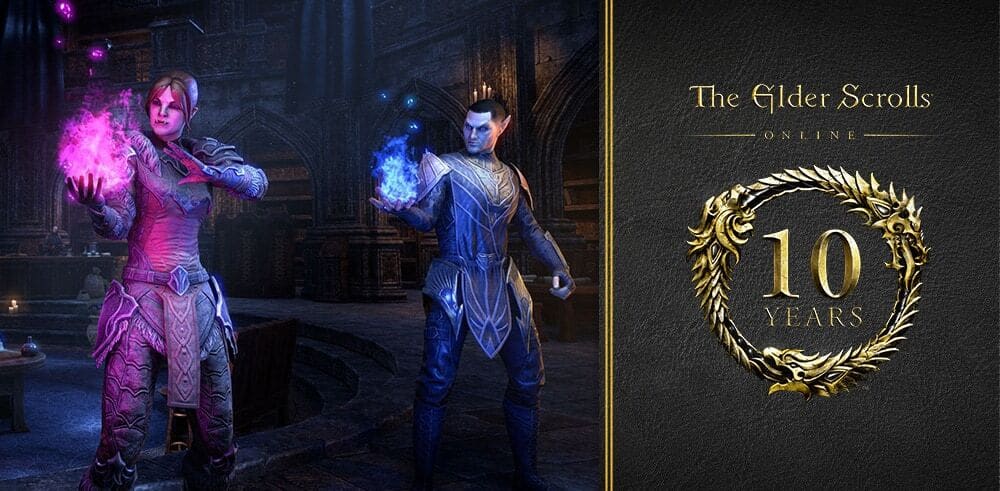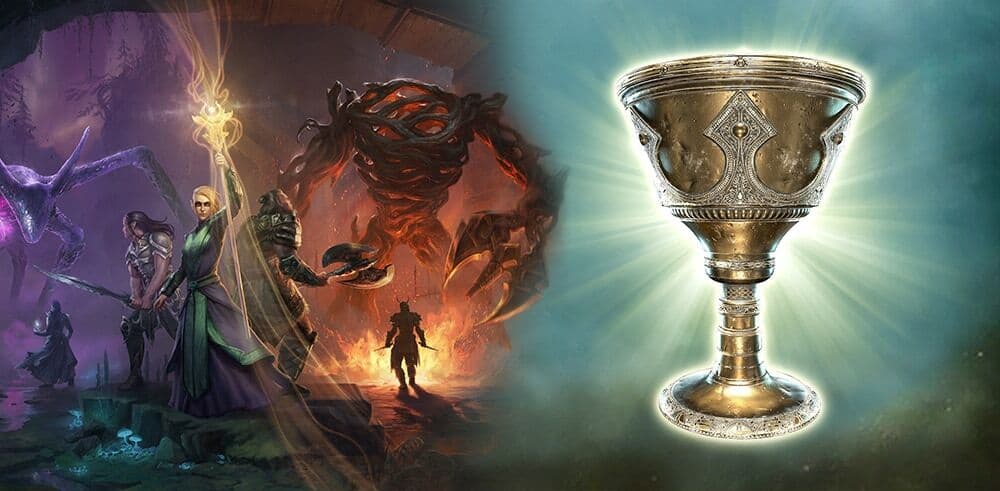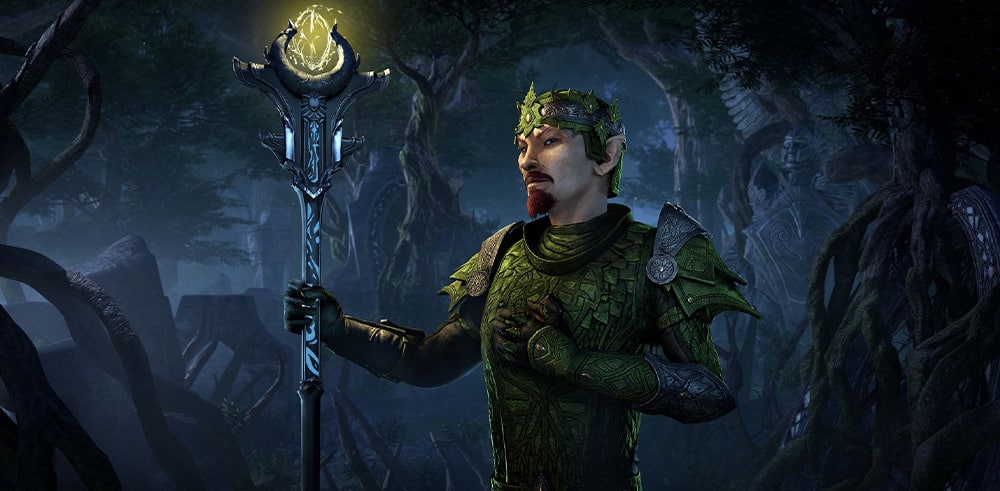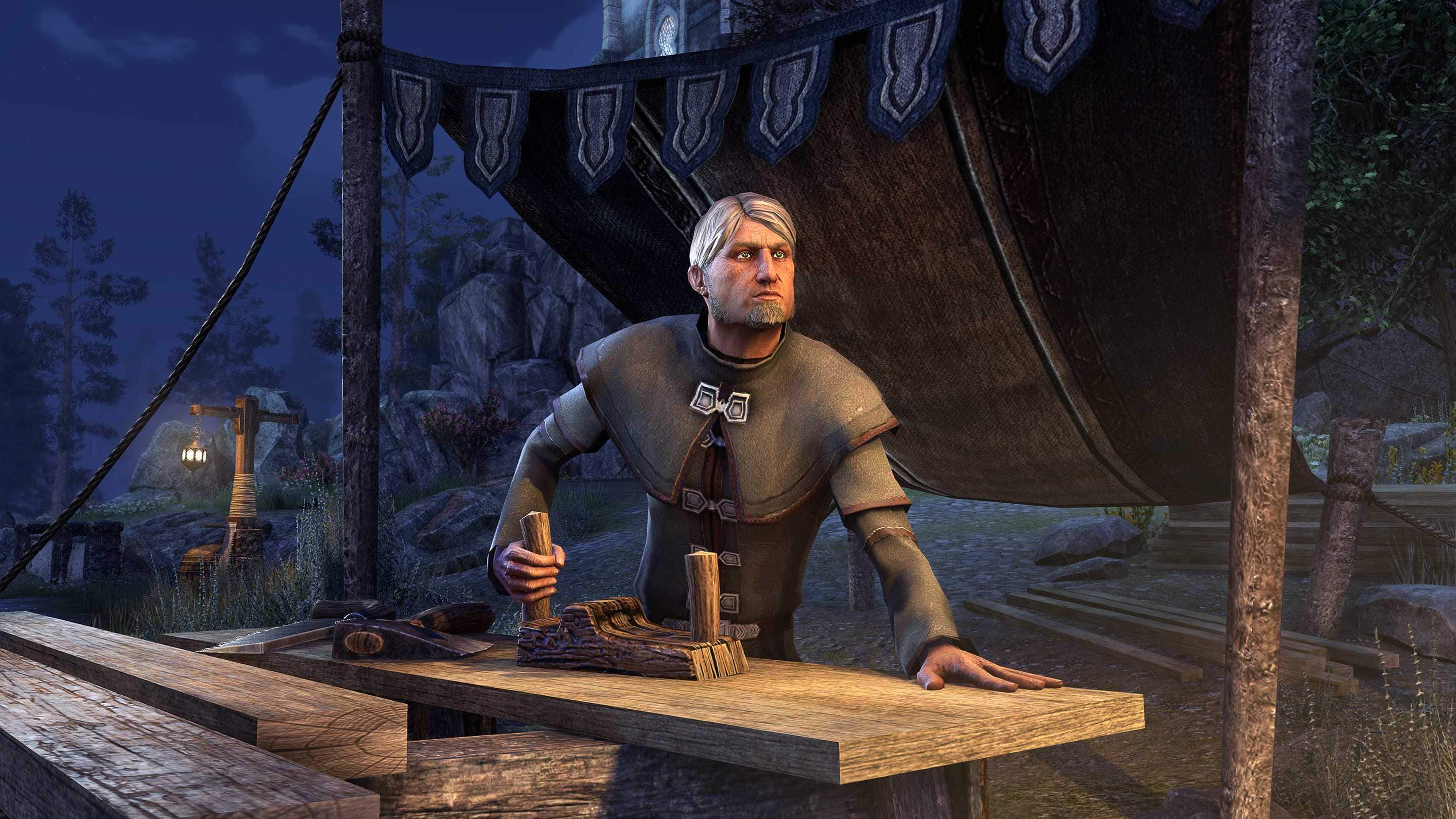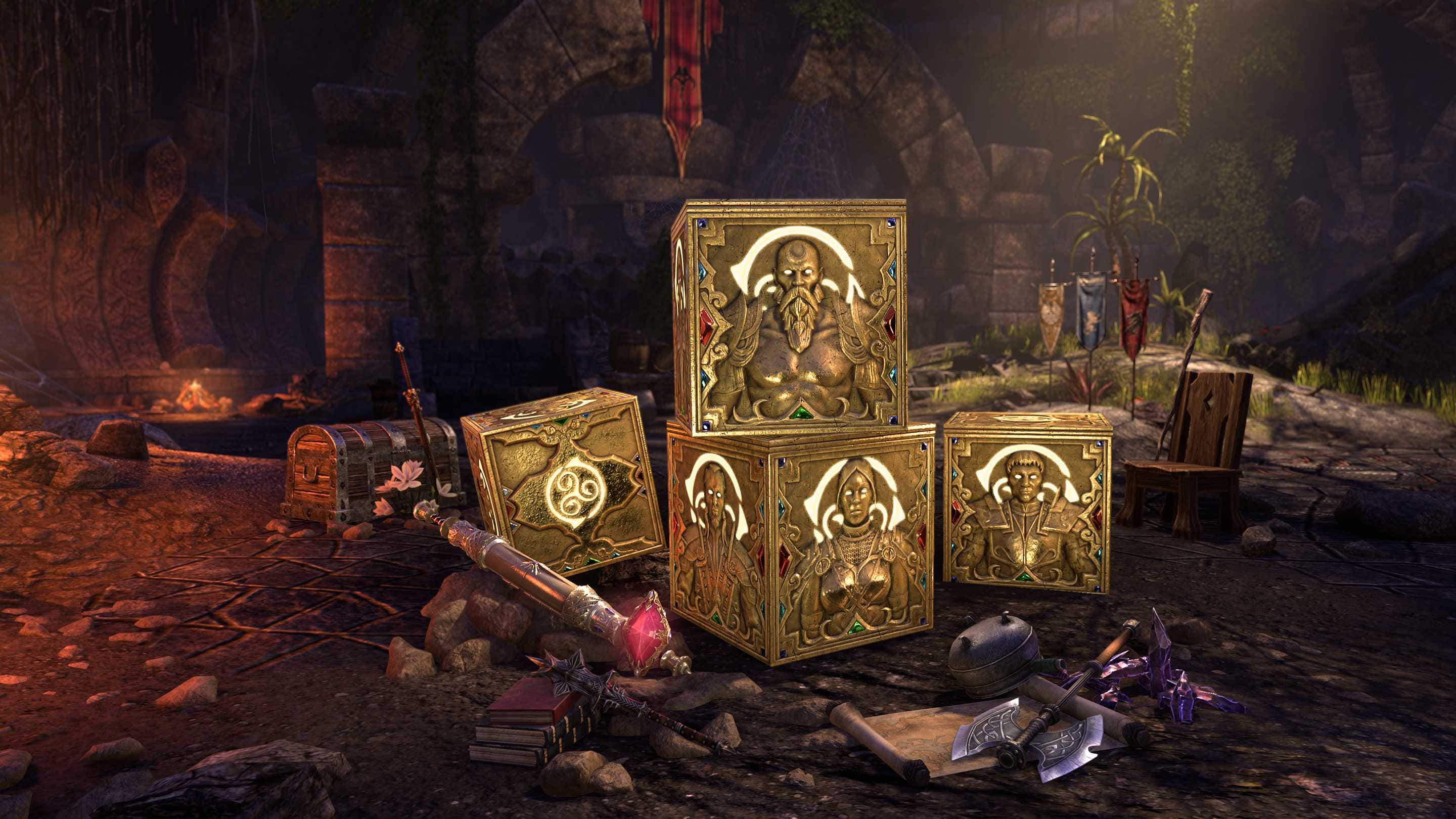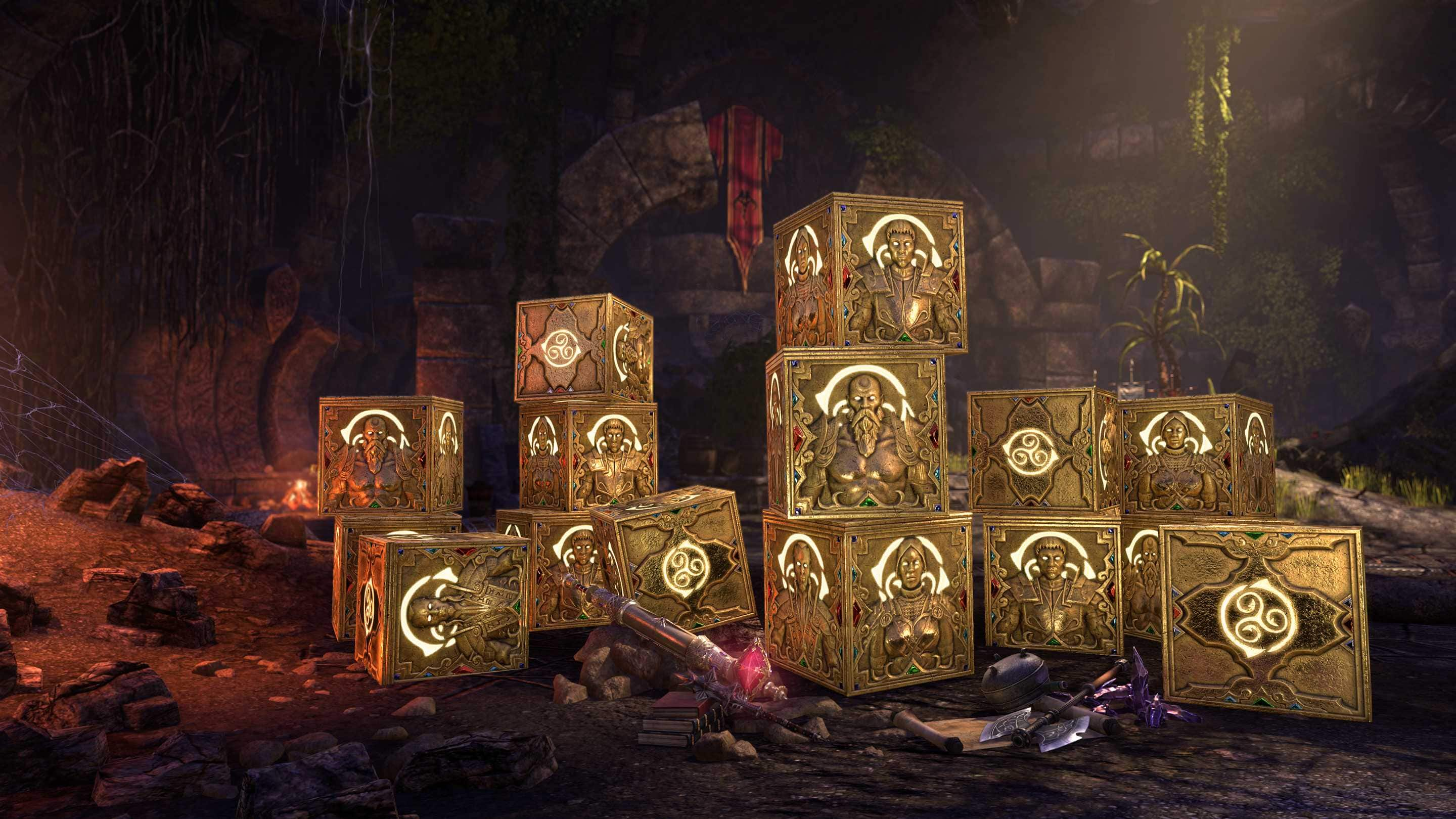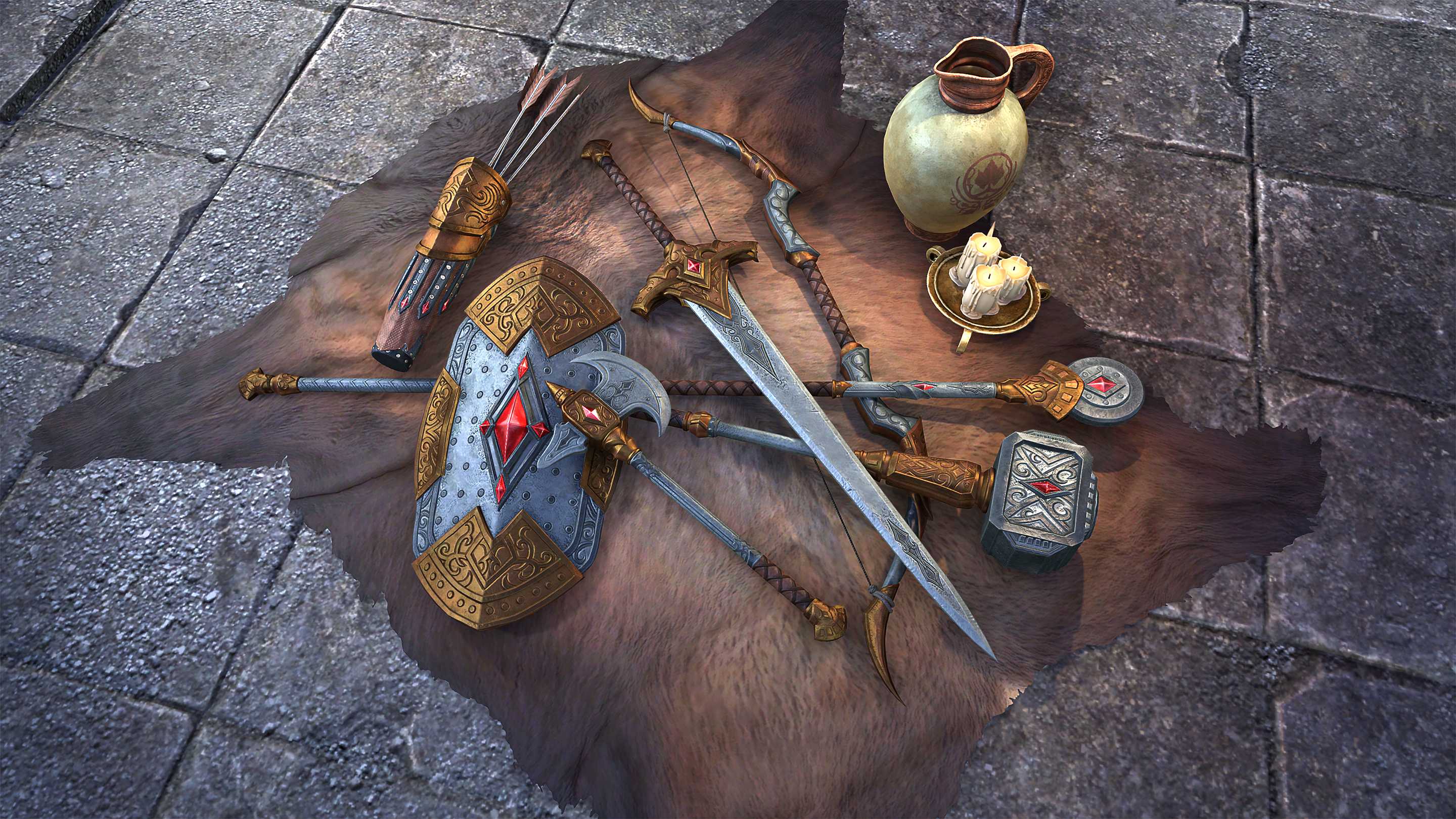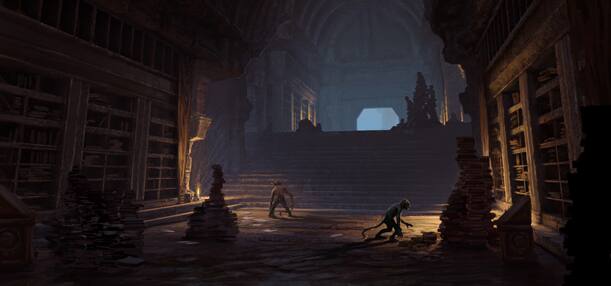

Read a new lore book about the nature of souls and get answers to your lore questions.
Abbot Crassius Viria of the Order of the Ancestor Moth has presented us with this new lore book today, and follows it with answers to your questions on souls, death, and what waits beyond. Enjoy!
Next issue, Thendaramur Death-Blossom will answer your questions on the Daedric Prince Boethiah, so send queries to community@elderscrollsonline.com.
The Interpreted Soul
By Abbot Crassius Viria
An initiate disturbed my meditations last night, wide-eyed and distraught. “Abbot,” cried he, “I have endured the most horrible dream. I was tending to the elders in their cells, bringing them food and water, listening to their soothing songs. The moths’ gentle wings fluttered, tranquil as always, when suddenly I was confronted by hideous apparitions! Incorporeal dead roamed the halls, and it appeared to me as if the moths were feeding on them—sucking wisps of ghostly material, perhaps their very souls, into hungry maws! Please, Abbot, tell me this is madness, that this is not so!”
It is not unusual for initiates of our Order to suffer unsettling dreams, especially as they learn more of the nature of our sacred charges, the Elder Scrolls, and the ancestors that grant us the wisdom to approach their infinite mysteries. Though much of the knowledge gained through readings of the Scrolls must be experienced personally to truly comprehend it, and despite being quite exhausted from my daily rigors, I was able to help him set aside his fears about our Order’s relationship with mortal souls and the moths that preserve fragments of their erudition from beyond mortality.
Not for us are the brutal methods of the conjurer or necromancer, tearing the soul from its vessel, constraining it and forcibly redirecting its energies with no regard for its journey or contents. No, the interplay of moth and ancestor soul is delicate and as natural as the canticle trees themselves, and we are patient and conscientious observers hoping to make sense of the cosmic tapestry by glimpsing its threads. It is through service to the moths and the ancestors that we gain guidance, not through the clumsy coercion of will without understanding the consequences.
The soul, I told him, has much in common with the moth—they are a symbolic pair. Though it is typical to think of it as the Aedric essence at the core of every mortal, I advised him to consider the soul in another light, scaled like the wings of the moth, and to imagine it comprised of vessels filled through the events of mortal existence. On release from life on Nirn, it is our belief that a kind of dissipation begins, and it is then that the moths learn the song of a soul’s fjyrons, which are shepherded under our care and protected generation after generation.
The fjyrons themselves must retain a connection to the grand fabric of creation, to the scattered soul-remnants in all their destinations. Through this link and with patient care, we receive guidance from beyond the present or past and the known world, where time is irrelevant. The moths do not capture or devour the souls of the ancestors, but only repeat to us what they’ve filtered, like a chorus repeating the verses of a grand song.
I could tell that, though the full dawn of understanding had not broken for him yet, his wild fears about the ancestor moths were somewhat allayed. I was pleased to assist him in his journey, and told him he would have ample time to ponder the nature of souls as he scrubbed the silkroom floors for the next week—penance for intruding on my nightly reverie.
The Abbot Crassius Viria answers your questions:
“As a Nord, I know that my soul may end up in Sovngarde, with Shor's leave, but could my soul leave Sovngarde and go into other realms of Aetherius if I so choose, or is my soul bound within that realm?” – Rhaegar Volker
Abbot Crassius Viria says, “Conjured or summoned souls of those who have passed on rarely tell of their sojourns in Aetherius, but it is the belief of our order that acts of will, such as travel, are rare where there is no need of volition. There is no choosing where there is no incentive for choice.”
“In a book by Sage Svari of Fallowstone Hall, I have read that Hircine will claim the soul of any lycanthrope upon their death. That leads me to the question of who actually has 'the final say' about where the soul of a mortal goes after death, as this example would suggest that Daedric Princes have a greater say in this than Aedra have. Are there instances in which some kind of conflict between the divine forces over the soul of a mortal may occur, and if so, what would be the deciding factors in such a conflict?” – Inkwolf
Abbot Crassius Viria says, “Sage Svari’s statement that Hircine ‘claims’ the souls of lycanthropes is poetic but misleading. It is the mortals themselves who decide the destinations of their souls by the choices they make during life. However, that said, there have been reports that Worm Cult necromancers have devised a way of hijacking the souls of mortals sacrificed in a certain Daedric ritual. This would be horrid, if true, but so far we have not received definite confirmation of it.”
“I've noticed an unusual number of sentient, friendly ghosts during my travels through Tamriel. Do you think this has something to do with the Planemeld, or is something else at work?” – Basha-jo
Abbot Crassius Viria says, “It is undeniable that the appearance of restless or unmoored spirits has increased within the last year or two—in fact, by our estimates, such apparitions are at a historical high. The fact that our world is simultaneously under assault by Daedra and the so-called ‘Dark Anchors’ is unlikely to be a coincidence. The tapestry of our reality is fraying, I fear, and the Scrolls are ambiguous as to the outcome.”
“Anointed Abbot, I come with a simple question relating to a diverse and complex topic: that of facial hair and its metaphysical significance. What role do beards (and other forms of bodily hair, if applicable) play in the Cult of the Ancestor Moth, and the ancient culture of Nibenay? Do they, in some way, relate to our collective spiritual role and our place in the Aurbis?” – Yours with Love and love, Vivul Maloren, of Ald-Cyrod
Abbot Crassius Viria says, “It is indeed true that most male Moth Priests sport chins that are significantly, even resplendently, hirsute, and many, various, and sundry are the mystic theories and esoteric hypotheses as to why this should be so. However, the wise student will simply reflect upon how ocular infirmity must complicate the task of shaving one’s chin.”
